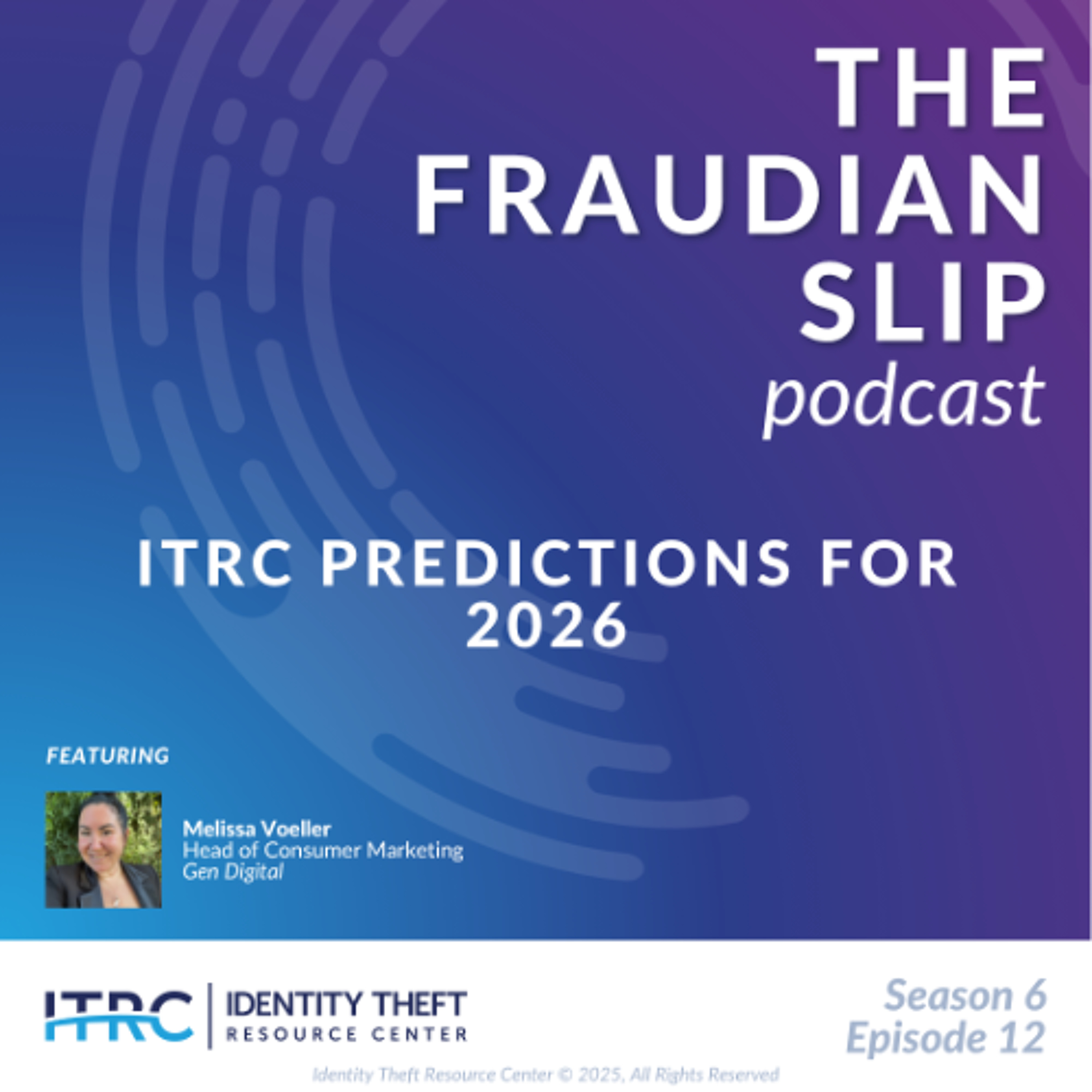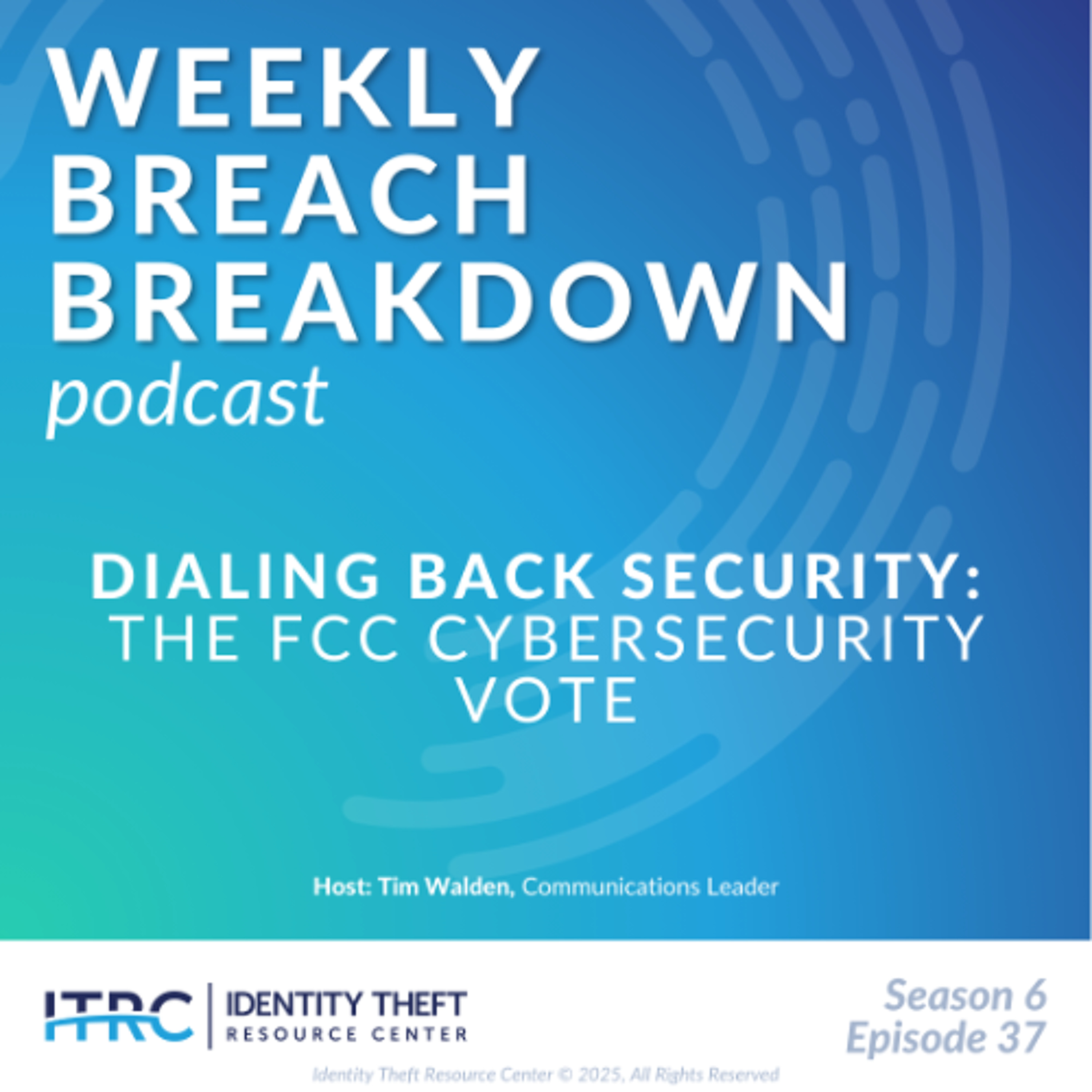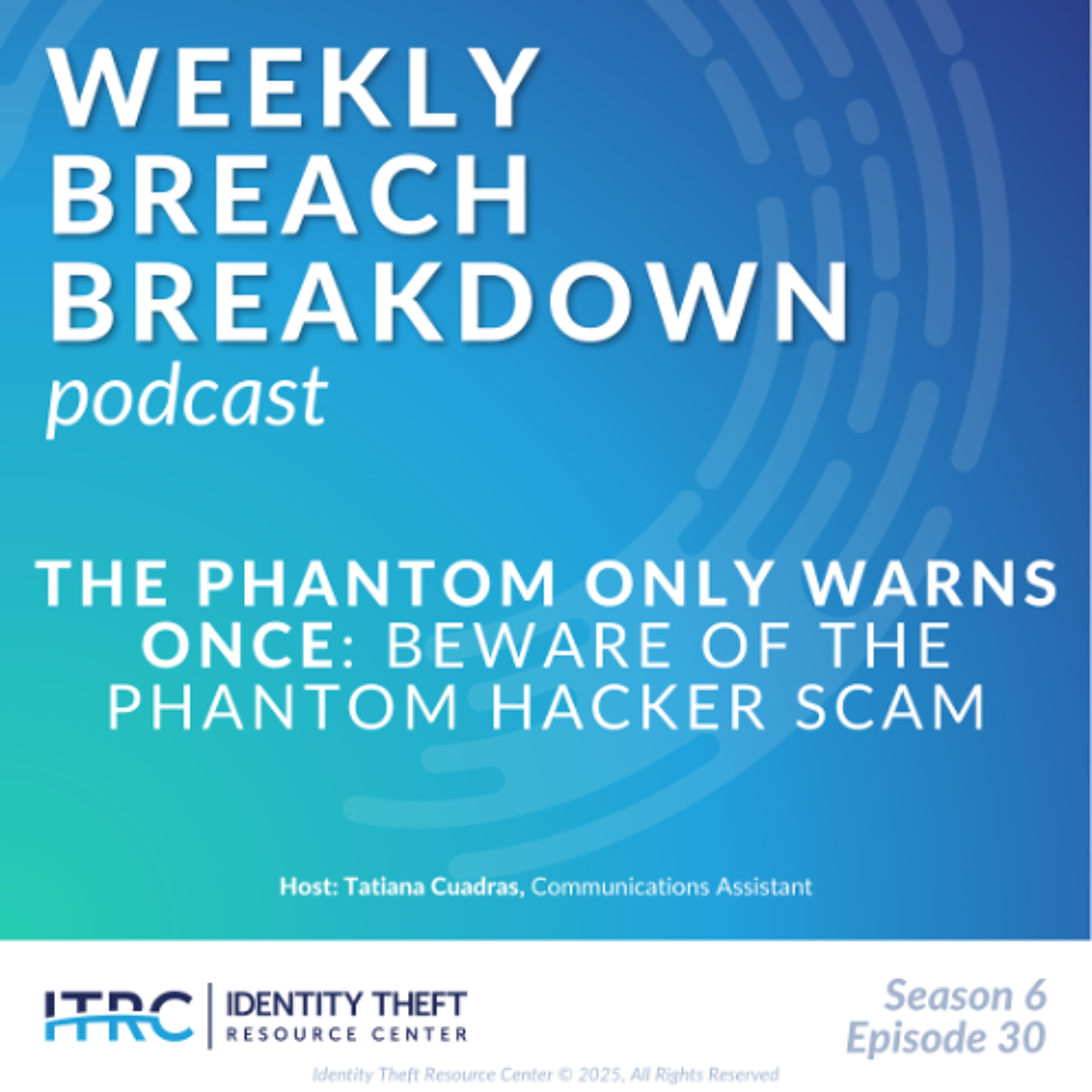Many people are familiar with the comic book hero The Phantom. In the very first Phantom story, the phrase “The phantom only warns once” was uttered to describe the uncompromising justice of the Ghost Who Walks and the finality of his warnings. There are no acts of justice or heroism to be celebrated regarding the type of phantom we are about to discuss.
Show Notes
Follow on LinkedIn: www.linkedin.com/company/idtheftcenter/
Follow on Twitter: twitter.com/IDTheftCenter
Show Transcript
Welcome to the Identity Theft Resource Center's (ITRCs) Weekly Breach Breakdown for October 3, 2025. I'm Tatiana Cuadras, Communications Assistant for the ITRC. Thanks to Sentilink for supporting the ITRC and this podcast. Each week, we look at the most recent events and trends related to data security and privacy. Today, we are going to break down a warning from the FBI about the phantom hacker scam making the rounds and the financial impacts it is having on consumers.
Many people are familiar with the comic book hero The Phantom. In the very first Phantom story, the phrase “The phantom only warns once” was uttered to describe the uncompromising justice of the Ghost Who Walks and the finality of his warnings. There are no acts of justice or heroism to be celebrated regarding the type of phantom we are about to discuss.
Have you ever heard of the phantom hacker scam? The FBI is sounding the alarm on this fast-growing scheme that targets older adults and their finances. There are three different approaches.
The first is the tech support imposter – Criminals contact you by phone or online and tell you that your computer is infected. They convince you to download software and give them remote access.
The second is the financial institution imposter – A different identity criminal poses as someone from your bank. They tell you that your money is not safe and urge you to transfer it into a “secure account”.
The third and final is the government imposter – Yet another scammer pretends to be from a federal agency. They employ various tactics to pressure you into not contacting the real authorities.
Each phase of the phantom hacker scam builds upon the last and is designed to establish trust and urgency, while drawing victims deeper into the deception. Unfortunately, scammers are skilled at what they do, and they create a convincing illusion that victims are protecting themselves when, in fact, they are being robbed. There is nothing heroic about that!
The goal of the criminals behind this phantom hacker scam scheme is to steal as much money as possible. According to the FBI’s Internet Crime Complaint Center, they are doing just that. Older adults reported $4.885 billion in losses in 2024, a 43 percent increase over $3.417 billion in 2023. The average loss per victim was about $83,000. More than 7,500 people lost over $100,000.
These numbers are staggering. However, it’s not surprising. The ITRC will release its 2025 Consumer Impact Report on October 28th, which will shed more light on the financial losses from identity theft, fraud and scams, as well as the emotional and psychological impacts.
What can you do to stay safe from the phantom hacker scam? Three things:
- Ignore any unsolicited pop-ups, texts or calls claiming your device has a security problem. In fact, ignore any unsolicited messages you receive and go directly to the source to verify the validity of the message.
- Never download software at the request of an unknown caller. It will be a scam.
- Keep records of suspicious contacts. You can file a complaint with the Federal Trade Commission at www.ReportFraud.ftc.gov and report it to the FBI Internet Crime Complaint Center at www.ic3.gov.
If you are a victim of the phantom hacker scam, the ITRC is here to help you. We will guide you through the necessary steps and be with you every step of the way. You do not have to go through it alone. Call or text us at 888.400.5530.
If you want to know more about how to protect your business or personal information, or think you have been the victim of an identity crime, you can also speak with an expert ITRC advisor on the phone, via text message, chat live on the web or exchange emails during our normal business hours (6 a.m.-5 p.m. PT). Just visit www.idtheftcenter.org to get started.
Thanks again to Sentilink for their support of the ITRC and this podcast. Please hit the like button for this episode and subscribe wherever you listen to your podcasts.
Alex Achten will return next week with another episode of the Weekly Breach Breakdown, examining the data breach numbers and trends in Q3. I'm Tatiana Cuadras. Until then, thanks for listening.
Listen On
Also In Season 6
-

The Fraudian Slip Podcast: Gen – ITRC Predictions for 2026 - S6E12
Welcome to the Fraudian Slip, the Identity Theft Resource Center’s (ITRC’s) podc -

The Fraudian Slip Podcast: Identity Theft Resource Center - 2025 Business Impact Report - S6E11
Welcome to the Fraudian Slip, the Identity Theft Resource Center’s (ITRC’s) podc -

The Weekly Breach Breakdown Podcast: Dialing Back Security – The FCC Cybersecurity Vote - S6E37
Welcome to the Identity Theft Resource Center’s (ITRC’s) Weekly Breach Breakdown -

The Weekly Breach Breakdown Podcast: A(I) House of Cards – ChatGPT Issues Impact Users - S6E36
Welcome to the Identity Theft Resource Center's Weekly Breach Breakdown for Nove
